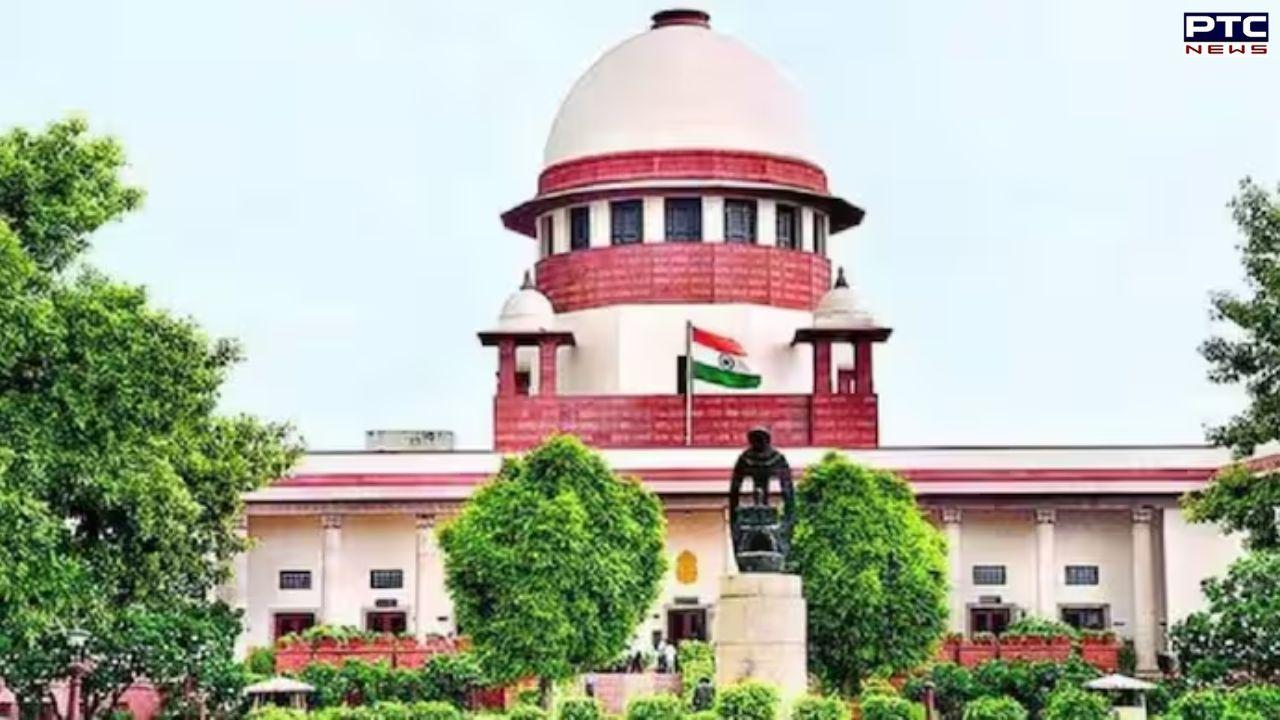- March 25, 2025
- Updated 2:22 am
Major setback for telecom firms as Supreme Court rejects plea on adjusted gross revenue dispute
- 53 Views
- admin
- September 19, 2024
- Latest News
PTC News Desk: The Supreme Court on Wednesday dismissed a plea from telecom companies to re-compute Adjusted Gross Revenue (AGR) dues, marking a significant blow to firms already grappling with financial strain. The telecom giants, including Vodafone Idea and Bharti Airtel, had sought relief, citing a severe financial crisis across the sector and what they described as errors in the Department of Telecommunications’ (DoT) calculations of the dues owed.
The rejected petitions follow an ongoing legal battle that began with the Supreme Court’s 2019 ruling, which required telecom operators to pay Rs 92,000 crore to the government within three months. In response to industry concerns, a 2020 ruling allowed the companies to stagger these payments over a 10-year period, with 10 per cent of the total dues required by March 31 each year. The current petition was aimed at contesting these dues, claiming that the calculations were incorrect.
At the heart of the telecom firms’ appeal was a demand to correct what they argued were miscalculations in the AGR dues, which consist of both license fees and spectrum usage charges.
According to reports, the DoT estimated the total dues owed by telecom companies at over Rs 1 lakh crore, with Bharti Airtel reportedly liable for Rs 43,980 crore and Vodafone Idea for Rs 58,254 crore. However, the companies’ own estimates suggested much lower dues, with Airtel claiming it owed Rs 13,004 crore and Vodafone Idea estimating Rs 21,533 crore.
Also Read: Kerala confirms second Mpox case in India, patient returned from UAE
The telecom firms also pointed to similar discrepancies in the dues of other companies, including Tata Teleservices, and raised objections to what they termed “arbitrary penalties” imposed by the court.
The dispute over AGR centers on how the revenue should be calculated. The DoT includes all forms of revenue, including non-core income, while the telecom companies argue that only revenue from core telecom operations should be considered.
The calculation of AGR is crucial because it determines how much the telecom companies owe the government in revenue-sharing arrangements. The government’s share is typically three to five percent of spectrum usage fees and eight percent of licensing fees.
The disagreement over AGR calculations has spanned nearly two decades. In 2019, the Supreme Court sided with the government, ordering telecom firms to pay a combined Rs 92,000 crore in AGR dues. This ruling sent shockwaves through the industry, leading to record losses for companies like Vodafone Idea and Bharti Airtel.
In response to the financial strain, the telecom companies sought ways to defer their payments. In July 2022, Airtel announced it would defer approximately Rs 3,000 crore in AGR dues from FY 2018-19 by four years. Similarly, Vodafone Idea deferred payment of an additional Rs 8,837 crore by four years. These deferrals followed new AGR demands from the DoT for financial years beyond 2016-17, which were not covered by the Supreme Court’s original 2019 ruling.
Despite these attempts to ease the burden, the telecom industry continues to face mounting financial challenges. With the Supreme Court’s latest decision, the companies will have to continue paying the dues as calculated by the DoT, further straining their already fragile balance sheets.
Also Read: Explosion rocks Hezbollah walkie-talkies in Lebanon, just a day after pager blast incident
Recent Posts
- Crown of goddess Kali, gifted by PM Modi, stolen from temple in Bangladesh
- Hezbollah leader survives assassination attempt amid Israeli strikes that kill 22 in Beirut
- ਕ੍ਰਿਕਟ ਦੇ ਬਦਲੇ ਨਿਯਮ, ਹੁਣ ਇਸ ਕੇਸ ‘ਚ ਦੁਬਾਰਾ ਨਹੀਂ ਮਿਲੇਗੀ ਬੈਟਿੰਗ, ਮੰਨਿਆ ਜਾਵੇਗਾ
- ਸਚਿਨ ਤੇਂਦੁਲਕਰ ਦੇ ਬਰਾਬਰ ਪਹੁੰਚੇ ਜੋ ਰੂਟ, ਪਰ ਵਿਰਾਟ ਦੇ ਇਸ ਰਿਕਾਰਡ ਤੋਂ ਅਜੇ ਵੀ ਦੂਰ
- Ratan tata death: ਸਿਰਫ ਵੋਲਟਾਸ ਹੀ ਨਹੀਂ, ਸਵੇਰ ਤੋਂ ਰਾਤ ਤੱਕ ਤੁਹਾਡਾ ਕੰਮ ਟਾਟਾ ਦੇ ਬਿਨਾਂ ਨਹੀਂ ਚੱਲ ਸਕਦਾ
